Among the first to arrive was a Labour grandee. Then others drifted over: academics, musicians, writers, a nurse. They came from different directions, some looking shifty, others excited. The secret meeting point was an inconspicuous pub in north London. Queueing shoppers nearby assumed the growing crowd was waiting to get into the supermarket. In groups of five those gathered were led down a suburban street to a derelict leisure centre. For one night only, the gym had been turned into a makeshift theatre. The audience, of up to 30 people, had congregated to flick a collective V at the social distancing measures, and to watch A Hero of Our Time, a three-hander adapted by HUNCHtheatre from the 1840 novel by Mikhail Lermontov. Inside the ‘theatre’, it was as if the past four months had been a very weird dream. Audience members kissed one another on the cheek without compunction, shared wine, and finally settled shoulder to shoulder on the floor to watch. There was not a face mask in sight.
Since the lockdown began on 23 March, Britain’s cultural life has moved online. Gigs are streamed and books launched on Zoom. Art made in captivity is relayed in anaemic photos on social media. For some the transition to digital has been intuitive, beneficial even: the number of people who participated in this year’s digital-only Hay Festival was almost double the number who normally buy tickets.
But broadly it’s been a dire time for people in the arts. Many are freelance and are neither on furlough nor qualify for government support. Incomes have vanished overnight. A recent study by the forecaster Oxford Economics found that coronavirus will wallop Britain’s creative industries twice as hard as it will impact the economy overall. More than 400,000 jobs are expected to go, and revenues are forecast to drop by £74 billion. Behind these cosmic figures are real people who are out of work or soon will be, and who are confronting an uncertain future. While the country is gearing up to open on 4 July, many galleries, clubs and concert venues will not. Cameron Mackintosh has said that he doesn’t expect West End theatres to reopen until 2021.
With the situation as bleak as this, it is little wonder that some in the arts are beginning to rebel. One of the organisers of last week’s clandestine play, who would rather not be named, has been taken aback by the ‘overconformist attitude’ that has swept the arts world since the start of the pandemic. ‘People have signed over their health to the state, as if they can’t make up their own minds about what risks to take. Staying indoors isn’t living. Life under lockdown has been reduced to a Zoom meeting — it’s unhealthy and atomising. I find it hilarious that the left wants to be on the side of Tory laws and regulations.’ When asked if she worries about audience members infecting one another and going back into the community, she points out that ‘everything is risk; life is risk. The most important thing shouldn’t be safety’.
Rule-breaking isn’t just happening in rarified theatre circles. Invitations to raves and club nights are going, well, viral. George Hull, a veteran rave promoter, believes there will be more illegal parties this summer than there have been in decades: ‘It’s already happening up and down the country. Gen Z kids are quite a spirited lot, and they’ve been stripped of the option of going to an overpriced club night or festival. So it stands to reason that they’ll go to unlicensed raves.’ Listen out for the new sounds that will inevitably bubble up from these sweaty incubators of creativity, just as acid house did in the 1980s. One quarantine party organiser reveals he’s bought antibody tests from Ireland for people to take as they enter the warehouse where he’ll host an invite-only night dedicated to general debauchery and the music of Sidney Bechet. He’s also considered getting a dog as a bouncer, as they’re rumoured to be decent coronavirus detectors. (The science suggests this is bollocks.)
The night before the play in north London, a dropped pin on WhatsApp maps the way to a new speakeasy. You pitch up at a central London townhouse, ring the doorbell, pay £20 and are led to a series of darkened rooms. The crowd is young, posh, cokey and cosmopolitan. As the night jitters on, the bar begins to feel more like a nightclub. Deprived of touch for months on end, people brush one another’s arms and stand a little too close, or gather by the speakers to be blasted by music: it sweeps the Covid cobwebs away.
For obvious reasons, it’s hard to be sure quite how much is going on behind closed doors. Polls have shown the lockdown to be surprisingly popular. Many in the arts are young, left-wing Remain voters who approve of the measures or believe they’re not tough enough. Recent research by LSE found that Leavers and those on the right — a group not overrepresented in the arts — tend to be more sceptical of the lockdown. An actor friend confirms that everyone she knows in the industry is playing nice, not as a mark of respect for the Conservatives but out of duty to the NHS.
Yet the longer actors and others in the arts are deprived of their livelihoods, the more clandestine activity will spread. It’s not just that people need to earn their crust, or even that they understandably don’t want to retrain in lockdown-friendly trades; it’s that many feel creatively famished.
Of course, this isn’t the first time that the arts have suffered as a result of edicts from on high. Theatres were closed by parliament in 1642, having been deemed hothouses of ‘lascivious Mirth and Levity’ (sounds great). The ban was lifted after those in the industry insisted they’d cleaned up their act. ‘Wee have purged our stages of all obscene and scurrilous jests,’ insisted the writer of the 1643 ‘Actors Remonstrance’.
Behind the Iron Curtain, Soviet hippies stole coils from phones to string their electric guitars and play banned music. When war broke out in 1939, London theatres closed, but soon reopened under public pressure. The arts adapted to the rationing of costumes, make-up and paper, and some London troupes performed in the safer provinces: the Old Vic, for instance, took a production of Macbeththrough Welsh mining villages. In London, theatre-goers prided themselves on their resilience — when Noël Coward’s Blithe Spirit opened in 1941 at the Piccadilly, the audience gamely climbed over rubble to reach the theatre.
Audiences today are more fearful: just 15 per cent of regulars are booking tickets, according to research by Indigo, and there has been no noticeable clamour from the public to jumpstart Britain’s cultural life. Yet how long will this attitude last? If livestreams — maybe supplemented by the odd no-contact play — continue to be all that’s on offer into October, might we not finally hear the cries of ‘Covid be damned’?
At the peak of the lockdown in April, the inveterate rule breaker and performance artist Anne Bean left her home at dawn to put up an installation on the foreshore of the Thames. At the time, the messaging from the government was almost monosyllabic: Stay Home, etc. Bean says she had the ‘strange feeling’ as she put up the art that what she was doing was ‘much more transgressive’ than past installations, many of which led to run-ins with the police.
In other parts of the country, communities of artists are continuing to organise gatherings and performances despite the lockdown. But there’s a lot of jumpiness about: one gallery owner was going to host an opening but got cold feet when word got out that she might be planning some sort of rebellion. Rafael Todes, a musician, was ticked off by the police when he and his family formed a string quartet on their street. ‘The copper listened to us play for 15 minutes, then at the end he accused us of “incitement to gather”. It was a great plod phrase,’ Todes explained.
Unlikely as it is that audiences will pack out big-name venues any time soon, how many more musicians and actors will be forced to break the law in order to find employment? A cultural community that in many ways seems to have forgotten how to defy the state might, however, need some lessons. There are few directors better placed to remind us of the art of disobedience than the man behind the unauthorised north London performance, Vladimir Shcherban, who was once a key member of a celebrated underground Eastern European theatre company whose productions were regularly shut down by the police. As William Cook wrote last month, the old way of doing things wasn’t working for everyone anyway. Moving performances into disused spaces — car parks, leisure centres, warehouses — and making shows more immersive and mobile could attract new audiences and free up the art form.
The Lermontov play had two acts. After the interval the audience was led to an empty swimming pool, which had become the Russian spa town of Kislovodsk. Everyone climbed down rickety iron ladders and watched the drama come to an end: the story finished, like all Russian dramas worth their salt, with a duel. High above the pool, a skylight measured the dimming of the day. The play was a tour de force, not only because of the faultless performances and ingenious direction but because of the extraordinary setting and the ferocity of the world that the play had kept at bay. The spell lingered for hours afterwards, made even more potent by the copious shots of homemade vodka distributed free to audience and actors alike, who caroused into the night. This all added up to much more than just an edgy bit of lawlessness. It was a vision of what theatre should really be like. If art is about spiriting you away into another realm, the whole evening was a masterpiece, from the illicit handshakes outside the pub at the start, to the final wild release back into the night.
Was the organiser frightened of being caught? She shrugs: ‘I’m not personally worried about getting busted. It’s obviously risky, but I would be prepared to go to prison for putting on a play.’
Got something to add? Join the discussion and comment below.
Get 10 issues for just $10
Subscribe to The Spectator Australia today for the next 10 magazine issues, plus full online access, for just $10.
You might disagree with half of it, but you’ll enjoy reading all of it. Try your first month for free, then just $2 a week for the remainder of your first year.

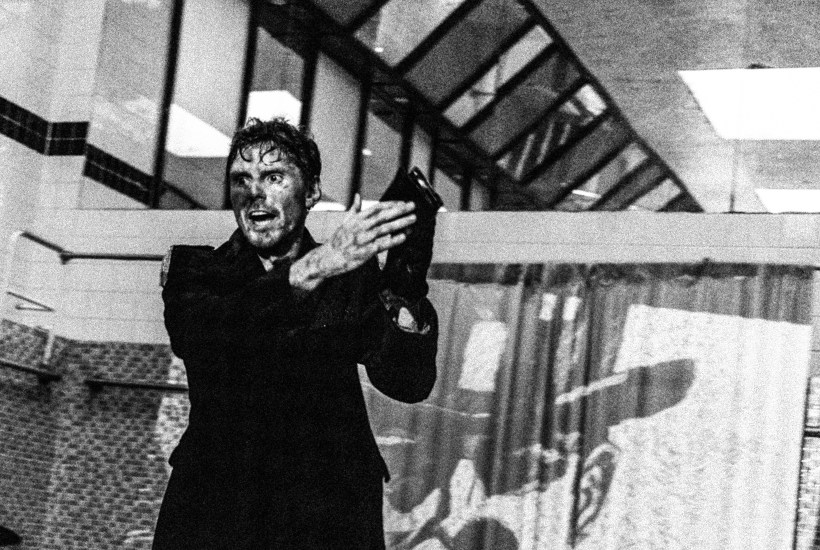
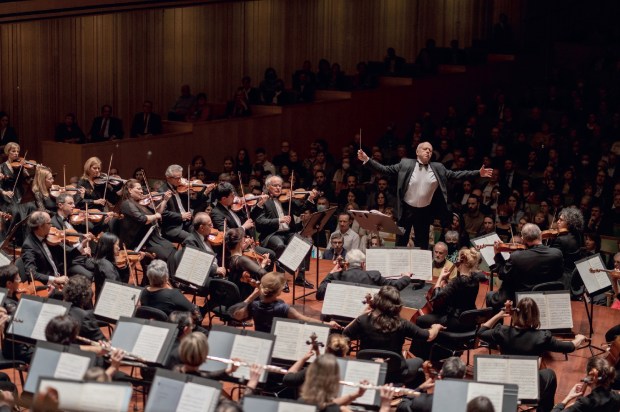
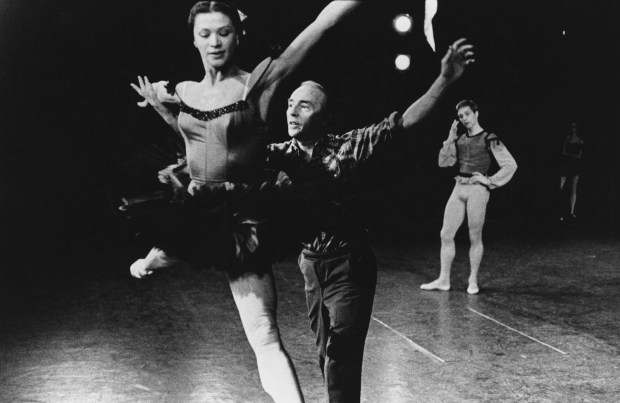
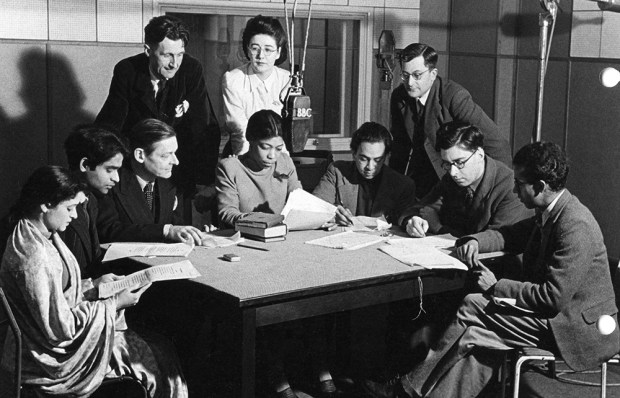


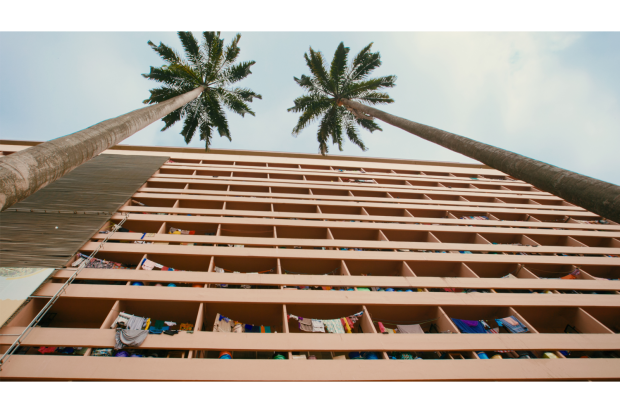






Comments
Don't miss out
Join the conversation with other Spectator Australia readers. Subscribe to leave a comment.
SUBSCRIBEAlready a subscriber? Log in